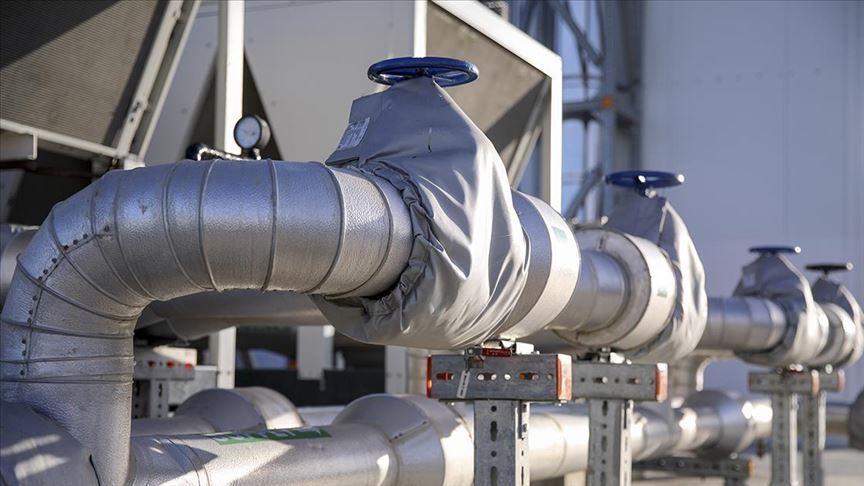The expansion of the global gas pipeline network threatens climate goals and risks creating stranded assets of $485.8 billion, according to a new survey by Global Energy Monitor (GEM) on Tuesday.
The commissioning of global gas pipelines began to see a revival, having declined last year due to COVID-19-related disruptions.
China, India, Russia, Australia, and the US lead the way with plans to commission new pipelines this year.
The survey found that 6,500 kilometers of gas pipelines were commissioned worldwide last year, representing the lowest level since 1996, with much of the decline due to the economic and logistical chaos caused by the COVID-19 pandemic.
About 36,800 kilometers of international gas pipeline networks are under construction and scheduled for commissioning this year, while a further 59,500 kilometers are due for commissioning between 2023 and 2030.
'The global gas network is poised for a large, rapid expansion,' GEM said.
The expansion is planned despite the International Energy Agency's (IEA) warning that gas use needs to peak within the next few years and that the world needs to quickly transition from fossil fuels to renewables.
GEM's survey found that for 2021, cancellations and delays in some parts of the world were offset by rapid expansions elsewhere, particularly in Asian countries, perpetuating a dangerous status quo incompatible with the IEA's 1.5 ºC net-zero scenario.
The mismatch between the required actions to limit global warming and the practice could cost an estimated $485.8 billion in capital expenditure for the natural gas industry. This is because there are currently 70,900 kilometers of pipelines in construction and an additional 122,500 kilometers in pre-construction development, which could be stranded assets as the world transitions to renewables.
'A slowdown in gas pipeline development in 2021 was, unfortunately, more about COVID-19 than a recognition that gas is contributing to the climate crisis,' said Baird Langenbrunner, a research analyst at GEM.
'Looking ahead, the fact that nearly half a trillion dollars of gas pipelines are in development makes no sense economically as many of these projects will become stranded assets as the world transitions to renewables,' he said.
China leads globally in natural gas pipeline development with 26,300 kilometers of gas transmission pipelines in construction and an additional 29,800 kilometers in pre-construction development.
This expansion amounts to a total stranded asset risk of $89.1 billion, the GEM said, adding that the Chinese pipeline boom is happening under the direction of the newly created conglomerate PipeChina, the world’s second-largest developer of gas pipelines behind Russia’s Gazprom.
India follows as the second country among global leaders in gas pipeline development with 16,200 kilometers under construction, with a further 2,200 kilometers proposed, corresponding to a stranded asset risk of $14.7 billion.
The stranded gas pipeline asset risk for Australia and the US is estimated to be in the region of $18.6 billion.
In the US, pipelines costing an estimated $47.6 billion are in development despite the defeat of several high-profile pipelines in the last two years.
GEM said the US expects to become the global leader in gas exports in 2022.
By Nuran Erkul Kaya
Anadolu Agency
energy@aa.com.tr


